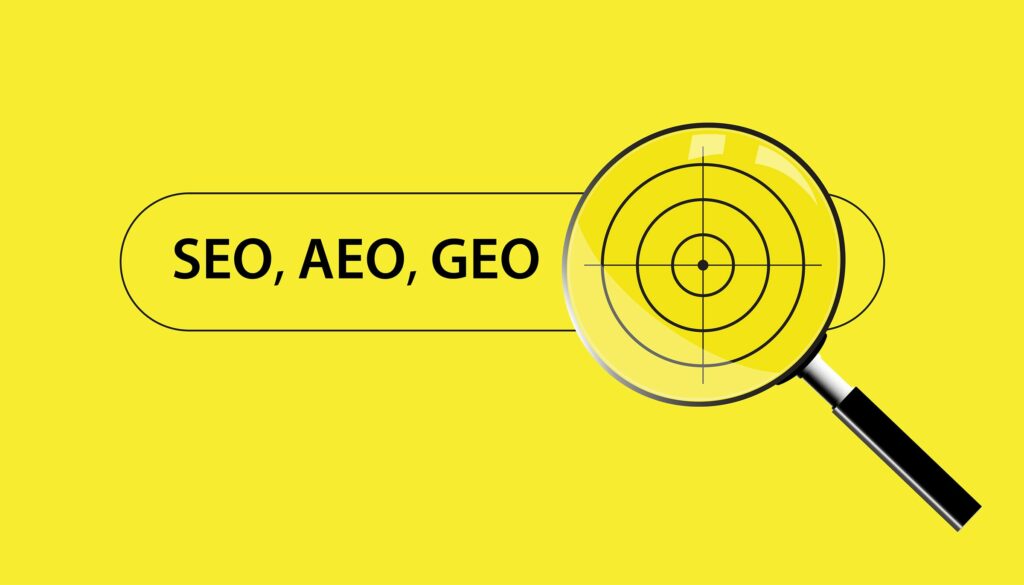For years, the formula for SEO success was simple: rank high, get clicks, drive traffic. But what happens when the clicks disappear? We are entering the zero-click search era, where users get their answers directly on the search engine results page (SERP) without ever visiting a website. This is a major shift in how we measure and achieve online visibility.
This isn’t just a minor trend; it’s a significant shift in user behaviour and search engine functionality. With the rise of AI-powered answers, featured snippets and knowledge panels, Google is transforming from a simple directory into an answer engine. For businesses and marketing managers, this means even with a top ranking position, website traffic can decline. The key is not to fight this change but to adapt your strategy to win in a world where visibility matters as much as traffic.
This guide will explain what zero-click searches mean for your business, why ignoring them is a risk you can’t afford and how to adjust your strategy to succeed. We will cover how to optimise for AI and featured snippets, diversify your presence across multiple platforms and leverage first-party data to build direct relationships with your audience.
The Problem with a Zero-Click World
Zero-click searches happen when a user’s query is fully answered on the SERP itself. This can happen through featured snippets, “People Also Ask” boxes, knowledge panels or direct AI-generated answers such as AI Overviews. While great for user convenience, this is a big problem for businesses that have long relied on organic traffic as a primary performance metric.
If your rankings are stable but your website traffic is dropping, zero-click searches could be the culprit. Ignoring this trend can lead to several negative outcomes:
- Reduced Brand Visibility: If your content isn’t being featured in snippets or cited by AI, you become invisible to a large segment of your audience.
- Lower Engagement: Fewer website visits mean fewer opportunities to engage users with your brand story, calls to action and lead magnets.
- Weakened Authority Signals: Over time, a decline in traffic can signal to search engines that your site is less relevant, potentially impacting your long-term rankings.
- Missed Data Insights: Website traffic provides valuable data about user behaviour. Without it, you lose insights that could inform your product development and marketing strategies.
- Potential Revenue Decline: For many businesses, less traffic directly translates to fewer leads, sales and conversions.
Redefine Success: New Metrics for a New Era
In a zero-click environment, traditional metrics like click-through rate and organic traffic don’t tell the whole story. To measure your performance accurately, you need to broaden your focus and track new indicators of success.
These metrics show your brand’s visibility and influence even if they don’t result in a direct click:
- Impressions: This classic metric is more important than ever. High impressions mean your brand is being seen, building awareness even without a click.
- Brand Mentions: Track how often your brand is mentioned across the web, including in forums, social media and AI-generated answers, which becomes a key indicator of reach.
- AI Visibility & Citations: Are AI tools like Google’s AI Overviews or Perplexity citing your content as a source? This is the new frontier of authority.
- Social Engagement: Likes, shares and comments on your content across social platforms show your brand is resonating with your target audience.
Three Strategies to Win in a Zero-Click Future
Adapting to the zero-click world requires a multi-faceted approach. It’s about optimising for visibility on the SERP, creating content that commands attention and building direct relationships with your audience.
1. Optimise for AI and Featured Snippets
Your new goal is to become the source of truth for search engines and AI models. To do this, you need to structure your content so it’s easy for algorithms to understand and feature.
- Create Content Worth Quoting: Develop unique, data-driven content that offers expert insights. Original research, case studies and detailed guides are highly valuable and likely to be cited. Think about what unique perspective or data you can bring to a topic.
- Structure for Snippets: Use clear headings, bulleted lists and numbered steps. Answer questions directly and concisely, often by starting a paragraph with the question itself. This format makes it easy for Google to pull your content into a featured snippet.
- Develop Click-Worthy Content: While optimising for snippets, don’t forget the click. Create headlines and meta descriptions that promise deeper value, enticing motivated users to visit your site for more comprehensive information. For example, a “Top 10” list might be shown in a snippet, but a user will click through for the detailed explanations.
2. Diversify Your Search Presence
Google is no longer the only search engine that matters. Your audience is searching for information on a wide range of platforms, and you need to be there to meet them.
- Go Beyond Google: Expand your content strategy to include platforms like YouTube, TikTok, Reddit and Instagram. Each platform has its own search algorithm and user base, and new opportunities for visibility.
- Adapt Your Content: Don’t just cross-post. Adapt your content to fit the format and culture of each platform. A long blog post can become a short video for TikTok, an infographic for Instagram or a discussion thread on Reddit. For example, a case study on JBuild Industries’ success could become a short video testimonial for YouTube and a series of impactful graphics for LinkedIn.
3. Build and Leverage First-Party Data
In an environment where you have less control over traffic, owning your audience relationship is key. First-party data, information you collect directly from your audience, is one of your most valuable assets.
- Grow Your Email List: Use gated content like ebooks, webinars and exclusive reports to encourage users to sign up to your email list. This gives you a direct communication channel that isn’t dependent on any algorithm.
- Use a Customer Data Platform (CDP): A CDP can help you consolidate data from various touchpoints to create a single customer view. This enables highly personalised marketing campaigns that build loyalty and engagement.
- Create Interactive Content: Quizzes, calculators and interactive tools are not only engaging but also great for collecting first-party data while providing immediate value to the user.
Your Next Steps
The rise of zero-click searches is a major turning point for digital marketing. It means we need to look beyond website traffic and redefine what it means to be visible online. Businesses that stick to old metrics will fall behind; those that adapt will find new ways to grow and engage.
By optimising for AI and snippets, diversifying your presence across multiple platforms and building a strong foundation of first-party data, you can build a resilient strategy that thrives in any algorithmic landscape. The future of search is not about fighting for clicks; it’s about earning attention and authority wherever your audience is looking.




